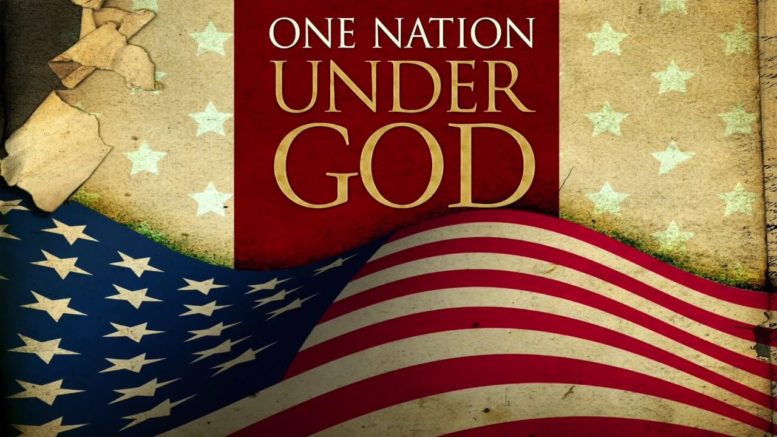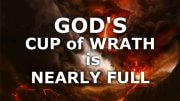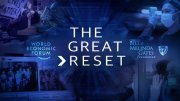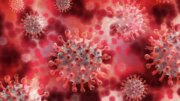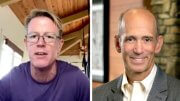We’ve reached our discussion’s final point; critical theory’s means for correcting oppression. Its objective is making society more just. Being just requires morality. Morality is a quality of rightness; virtue. It relates to character or conduct from the point of view of right and wrong.
Critical theory pursues society’s transformation using democratic (government) institutions. Imposing morality from the outside by changing its conduct. Government orders society, rather than individual decision making. Critical theory implies character doesn’t matter. Only the outcome, one’s actions, does. However, this idea is false.
Our actions shape our character. Those actions are the result of our choices, and our choices influenced by the ideas we choose to hold. Ideas matter, they determine who and what we become. Morality is all about character; character reflected in our conduct. But all this begins with ideas. Punishment is sometimes imposed to change conduct. It’s imposed for three reasons. First, correcting someone’s behavior. Second, serving as an example to others. Third, protecting people from harm. But simply imposing conduct by redefining morality seldom works. However, it does create an incentive to cheat. More deception likely to increase immoral behavior.
Character or Conduct?
Charity is moral, helping others in need. For example, I can voluntarily choose to give 30% of my earnings to those in need. These actions help shape my character. On the other hand, a democratic institution can simply take 30% of my earnings and give it to the same individuals in various forms of aid. Critical theory’s ideas argue both instances are equivalent as they achieve the same outcome. The ends alone matter, not the means used to attain them.
In the first case, these actions create or enhance virtue in both charity’s give and receiver. Those receiving charity become better at standing on their own, and those giving develop better stewardship. Tomorrow, the situation could be reversed, and I could need aid from others—maybe even from the same people I’d helped earlier. This creates a virtuous cycle of caring for our fellow man. Isn’t that one of the Gospel’s main ideas? We first love God, and through that love develop love for our fellow man.
And the second case doesn’t lead to the same end. After government takes from my income, I may have nothing left to share with others. Without that sharing, my character changes. Likely for the worse. I could choose to hide income out of spite, or so I have some to share with others. Those receiving help are also hurt. They lose their dignity and independence—freedom. Society loses the relationships we all are to build with each other.
Government is also affected. The ability to both take from others and spend creates incentives for it to cheat. Government may take more than needed, or begin putting conditions on what it gives, and to whom. All these behaviors lead to less morality—not more. We’ll pick this up again in a bit.
Critical Theory’s Ideas About Morality
So, a few final critical theory ideas concerning morality. First, critical theory’s connection to philosophy enables it to “link empirical and interpretive social science to normative [standard] claims of truth, morality, and justice.”[1] Philosophy provides reason, and science the means of applying it. Man is all that is needed. As mentioned in the first article, under critical theory’s ideas man’s reason takes God’s place and applying reason His presence in the world. This claim is used to rationalize making decisions impacting truth, morality, and justice. But how can one be moral when they remove morality’s source?
Critical theory’s ideas present a pagan world view. It suggests reason and freedom are turned into their opposites without its philosophy and science. “Rather than being liberating and progressive, reason has become dominating and controlling.”[2] Reason is one of God’s gifts to man, and in all creation man alone possesses it. But you don’t lose your reason or freedom. When you turn away from God, you lose their benefit. Freedom becomes undirected, license to do whatever one wants leading to oppression. Self-sacrifice becomes self-interest. Charity is no longer directed using virtue; it becomes entitlement. Reason shifts from what’s moral to man’s desires. Our focus shifts from the spiritual to the material. Critical theory is only occupied with the material.
Implications
Critical theory recognizes the problem, but denies the only solution—God. It focuses on man. Using deception to persuade man to deny his true nature. We see an example in the United Nations. Its Universal Declaration of Human Rights is a strictly secular document. On a park wall, across the street from its headquarters, is the following:
They shall beat their swords into plowshares, and their spears, into pruning hooks; nation shall not life up sword against nation. Neither shall they learn war any more. (Isaiah 2:4)
This passage reflects the U.N.’s mission of creating peace. Peace is man’s natural state when turned toward God. He strives to serve others. When turned to himself, man’s natural state is seen by philosophers as one of war, an implication from Hobbes state of nature. Peace becomes the absence of war, rather than our natural state. But man’s nature hasn’t changed. Instead he loses God’s gift of peace, the fruit of man’s real natural state. The above passage occurs in the last days, when people will go to God’s house to learn His ways so they may walk in His paths. The U.N.’s goal is noble, but how well has it done? Should we expect anything different from critical theory, which holds similar ideas? No.
Heaven and hell are mutually exclusive—opposites. You can only choose one or the other. Heaven is light. Hell, light’s absence—darkness. Heaven, God’s presence. Hell, His absence—idolatry. Heaven has truth. Hell, its absence—deception. In heaven is freedom. Hell—slavery. One finds God’s justice in heaven. Hell, its absence—injustice. In heaven is morality. In hell—sin and vice. All things found in hell are a counterfeit of those in heaven. Heaven has angels; hell demons. Heaven has charity and mercy, hell only oppression.
A Final Example …
But it’s not just people who oppress, it can also be things. From critical theory’s perspective, it doesn’t matter. The response is the same. Take the coronavirus outbreak. We initially knew little about it. Some tried to create fear. People are easier to manage when they’re afraid.
Many states declared emergencies. We were told to shelter in place. Economies were shut down. Some recommendations, such as the federal government’s guidelines, were common sense. Wash your hand. Don’t touch your face. Stay home if you’re sick. Keep more space between you and others. But by and large, the ability to make our own decisions to adjust for the virus was taken from us by state government.
Later, we were told to wear masks, even though the CDC initially stated that action only provides a false sense of security. Science says masks don’t work. Isolation doesn’t work. We can also see that in the numbers. And we are paying a high price for failing. Increases in suicides, substance abuse, violence, depression, and other mental illnesses. Our children missing out on their social development. Time is the one thing we cannot ever get back.
… And Now …
Now we know more. We know who’s at risk. Those over 65 or have health conditions. Eighty percent of the claimed deaths are 65 or older. There are almost no deaths for those under twenty. So why are we still shutting down our schools and economies? We also have therapeutics that work. Why weren’t they used? Needless numbers died. The death rate throughout central Africa has been much lower than elsewhere in the world, even though there is a higher rate of people having the virus. Science can’t explain it.[3] But there is a simple explanation. They use hydroxychloroquine for malaria. They’ve not shut down their economies or even anti-socially distanced. And they’ve been far less impacted than developed countries. We’ve not had an emergency for months.
But our reaction to the virus is an application of critical theory. Reason determines we must be kept safe and secure. Democratic institutions must provide that safety and security—whether we want it or not. Government orders society. Freedom, rights, justice, and morality take their pagan forms; rather than what God intended. The result of our choices.
… Now to Act
When immoral people grab power, they don’t want to let it go. We have such a person in our current governor. If he had honor, he’d resign. But we know that won’t happen. He’s abused the power granted to him by those he serves. The legislature has the means to correct this situation, but it has also failed to act. They share the same ideas. But we have a solution. Vote them out of office. Although the governor is not on the ballot until next year, we do have a senator on it this year. An incumbent that, despite his words, votes in alignment with critical theory’s underlying ideology. Ideas contrary to our society’s founding principles under God.
We are to obey our officials, but they are also to act morally in serving the people. If they don’t act with righteousness, we have a duty to correct things. We have a moral duty to act. Do we want to learn and walk in God’s ways? Do we wish to realize His gifts benefits? The last three plus years have been a reprieve. The choice is ours. All we need to do is know and act accordingly—with morality.
Comparison of Christian, critical theory, and pagan ideas
Below is a final table, based on these article’s contents.
|
Idea |
Christianity |
Critical theory |
Greek philosophy |
|
Supreme Authority |
God |
Man |
First cause |
|
Religion Focus |
God |
Man |
god(s), created by man |
|
Ideology |
Man, influenced by God’s natural rights and divine law |
Man, influenced by his own reason |
Man, search for truth of existence, morality, and knowledge |
|
Man’s nature |
Equality of nature, only one race – the human race |
Some more equal than others, class existence |
Some more equal than others, class existence |
|
Values |
God. Man’s values to align with God’s |
Man |
Man |
|
Motivation |
Self-sacrifice |
Self-interest |
Self-interest |
|
Basis for Choice |
Reason and discernment |
Appetite and emotions |
Reason and discernment |
|
Virtue |
Good or evil – absolute choices |
Good and evil – a mixture |
Good and evil – a mixture |
|
Basis for Rights |
Righteousness God |
Power Human law |
Power Human law |
|
Existence |
God |
Various |
First cause |
|
Morality |
God |
Man |
Man |
|
Knowledge |
God |
Man |
Man |
|
Freedom |
Man’s natural state |
Oppression’s absence |
Oppression’s absence |
|
Rights |
God’s natural rights. Human rights align with God’s |
Human rights |
Human rights |
|
Justice |
God’s final. Man in this life applying divine, natural, with human law |
Human law |
Human law |
|
Society’s Order |
Individual decision making |
Democratic institutions |
Those in power – the elite |
|
Basis for Man’s Actions |
Ideas forming character |
Allowed conduct |
Pagan virtue |
Footnotes:
[1] Bohman, James, “Critical Theory”, The Stanford Encyclopedia of Philosophy (Winter 2019 Edition), Edward N. Zalta (ed.), URL = <https://plato.stanford.edu/archives/win2019/entries/critical-theory/>. Accessed Sept., 2020.
[2] Ibid.
[3] Nordling, Linda, The pandemic appears to have spared Africa so far. Scientists are struggling to explain why, Aug. 11, 2020. https://www.sciencemag.org/news/2020/08/pandemic-appears-have-spared-africa-so-far-scientists-are-struggling-explain-why. Accessed, Oct., 2020.

